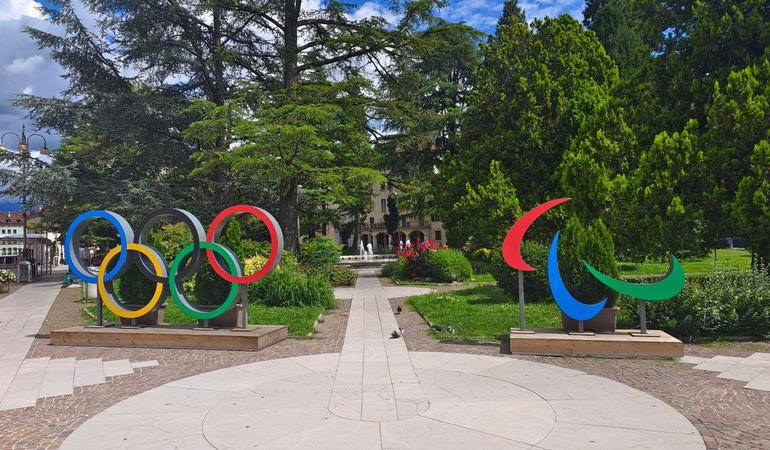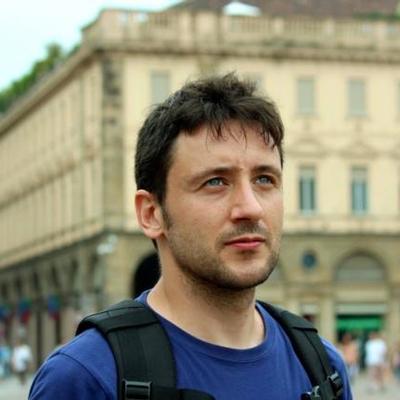
Milano-Cortina. Ecco come verranno spesi i 450 milioni di euro delle paralimpiadi


31 agosto 2023
On 10 October in the UEFA offices in Nyon, Switzerland, a meeting is scheduled that – barring a resounding turnaround – will assign the 2032 European Football Championships to Italy and Turkey. The process involves the formal examination of the candidature, but the victory of the two countries - the only ones to have officially manifested their desire to host the continental event - is now a done deal.
The choice of the Italian Football Federation (FIGC) to ally with Turkey is questionable: the country led by Recep Tayyip Erdogan has been accused on several occasions of violating human rights and fundamental freedoms. In July 2022, the European Court of Human Rights condemned Turkey for its failure to release businessman and philanthropist Osman Kavala, who was sentenced to life imprisonment for supporting anti-government protests at Istanbul's Gezi Park in 2013.
According to Amnesty International's Deputy Director for Research on Europe, Julia Halla, 'if Turkey insists on its stubborn refusal to release Kavala it will further damage its reputation as one of the founding states of the Council of Europe'. In 2019, the same court ruled that the Turkish government had acted with the intention of silencing the prisoner, but Strasbourg's admonitions had no effect. Not only did Turkey not release Kavala, but it added new and heavy charges against him. Thus, in February 2022, the Council of Europe's Committee of Ministers initiated infringement proceedings for failure to implement the 2019 judgment.
Although shared, Italy will thus return to the scene of a major football tournament, 42 years after the magical nights of Italia 90. For Turkey, on the other hand, it is an absolute novelty, following the Champions League final between Manchester City and Inter Milan, played last June at the Ataturk stadium in Istanbul. An important event to relaunch the country's image, strongly desired by Erdogan, who was photographed that evening in the stands next to UEFA president Aleksander Ceferin.
Turkey, as is well known, is not a member of the European Union: in 1999 it obtained the status of candidate country from the European Council, starting accession negotiations in 2005. Since then, between approaches and removals, nothing has changed: the country is still waiting, while it is a full member in UEFA, with the National Football Federation (TFF) affiliated since 1962.
In the history of the European Championships, this is not the first time that two nations bid together for the organisation of the event. It had already happened in 2000 with Belgium and the Netherlands, in 2008 with Austria and Switzerland and in 2012 with Poland and Ukraine. The latter edition was characterised by strong controversy due, on the one hand, to the mass extermination of stray dogs and cats in Ukraine and, on the other, to the alleged mistreatment of former Prime Minister Yulia Tymoshenko in prison.
The atmosphere on the eve was so tense that the then President of the European Commission Josè Barroso, along with other politicians, threatened to boycott the event, which in the end took place regularly from 8 June to 1 July, when in the final the Spanish national team triumphed over the Italian one.
The absolute novelty, if anything, is that Italy and Turkey are not neighboring countries, which will result in athletes, staff, media and the public having to travel long distances from one country to another. It is rumoured that the stadium in Istanbul could be the setting for the opening match, while the final would be played at the Olimpico in Rome.
According to Amnesty International in Turkey "investigations, judicial proceedings and convictions of human rights defenders, journalists, opposition politicians and others continued, albeit in the absence of legal bases"
That there is no room in Turkey for those who think differently is shown in Amnesty's 2022-2023 report. The document explains how 'investigations, prosecutions and convictions of human rights defenders, journalists, opposition politicians and others have continued, albeit without legal basis'. The parliament has introduced 'draconian changes to existing laws, which have further restricted freedom of expression online. Police used illegal force inseveral provinces to arrest hundreds of participants in Pridevietateparades and the right to peaceful assembly remained severely restricted' .
The State broadcaster Rtük approved an advertisement in which LGBT people were called a 'virus' and accused of causing the 'destruction of families', promoting a demonstration against LGBT rights in Istanbul.
The situation regarding refugees is also critical. According to Amnesty, 'violent summary repatriations of Afghans and others have resulted in deaths and serious injuries, in a context of increasing racist rhetoric against refugees by politicians and media outlets. Serious and credible allegations of torture and other ill-treatment have been made'. The authorities even exploded live bullets to repel thousands of Afghans seeking protection trying to cross the border into Iran, resulting in deaths or injuries.
The violence does not spare the home front: at Marmara prison in Istanbul, eyewitnesses reported seeing guards beating inmates, driving them to suicide. Recently, 16 journalists and the co-president of the journalists' association Dicle Firat were remanded in custody on charges of 'belonging to a terrorist organisation', while the pop singer Gülsen was arrested for 'inciting the public to hatred and enmity' after spreading a video on social media in which she and a band member exchanged humorous jokes. Equally totalitarian is the legislative action of parliament, which has introduced the criminal offence of 'public dissemination of disinformation', which is in the way with the increased powers of the Information and Communication Technology Authority, which can force social media companies to remove content, provide user data or face fines and a severe reduction in bandwidth.
The government acts abruptly, as in the case of the ban on the Saturday Mothers group, which meets to protest against forced disappearances in the 1980s and 1990s. The police even went so far as to arrest human rights lawyers Öztürk Türkdogan and Eren Keskin, as well as some relatives of the disappeared.
With regard to women, in the first 10 months of 2022, at least 225 femicides were ascertained, but the number - according to the platform We Will Stop Femicides - would be 393 victims. In March, three prominent members of the Diyarbakir-based Rosa women's association were taken into police custody and charged with 'belonging to a terrorist organisation'.
In July 2022 the then Prime Minister, Mario Draghi, meeting Erdogan said that "Italy and Turkey are partners, friends, allies", but only a year earlier he had defined the Turkish president as "a dictator"
The Italo-Turkish football joint venture is surprising up to a point, given the very close relations between the two countries. In July 2022, the then Prime Minister Mario Draghi, meeting with Erdogan, said: 'Italy and Turkey are partners, friends, allies. We have great challenges ahead of us, starting with the war in Ukraine, and we want to work together to face them'. Statements that clashed with what the Italian prime minister had said in April 2021, when without half-measures he had called Erdogan a dictator 'whom we need to cooperate and ensure the interest of our country'.
A year later, the Turkish president met Giorgia Meloni, who tweeted a comment on the sidelines of the meeting: "We talked about the common interest in strengthening our commitment on the southern shore of the Mediterranean and how to strengthen cooperation and economic relations between our nations. We continue to work for a just and lasting peace'.
The Italian government's website infoMercatiEsteri describes economic and trade relations with Turkey as 'excellent'. In 2011, the interchange between the two countries reached a record level of 21.3 billion dollars, while in 2020 Italy was Turkey's sixth largest trading partner, second among European countries. In the same year (Turkstat data), the interchange reached 17.3 billion dollars, with 9.2 billion dollars of Italian exports to Turkey and 8.1 billion of Turkish exports to Italy. 'Even in the field of public procurement,' the site reads, 'Italian companies have achieved excellent results in recent years by winning contracts for the construction of some of the most important Turkish public works'.
The portal makes no mention, however, of the arms trade, but even in this case business is flourishing. In the Report of the Chamber of Deputies on the 'operations authorised and carried out for the control of exports, imports and transit of armament materials', presented by the secretary of State Alfredo Mantovano, in 2022 Turkey appears to be Italy's number one customer, with 589 million euro in purchases, followed by the United States, Germany and Qatar. A remarkable leap forward, if you think that only a year earlier Turkey was only in 17th place.
Turkey's firm intention to host the European Football Championship seems to be yet another case of sportwashing, a practice through which controversial countries clean up their image in the eyes of the world by organising sporting events with a high media impact. The most recent example is the 2022 World Cup in Qatar, where an unspecified number of migrant workers, employed in the construction of stadiums, lost their lives.
According to the director of Amnesty International's Economic and Social Justice programme, Steve Cockburn, "it is likely that extreme temperatures and harsh working conditions contributed to hundreds of these deaths, but without full investigations the exact number of workers who lost their lives in Qatar will never be known. This high number of deaths was not due to natural causes and there can no longer be any excuse for denying their families truth, justice and compensation. As long as these demands continue to be denied, there will be a deep shadow over the legacy of the World Cup'.
Erdogan thus seems to be following what the emirate has already done: diverting attention by showing the world the feats of Europe's best footballers. It remains to be seen how appropriate it is for Italy to become an accomplice in this strategy.
This article was translated by Kompreno with the support of DeepL.
La tua donazione ci servirà a mantenere il sito accessibile a tutti
Riformata. Così il governo vorrebbe la magistratura, ma l'obiettivo è solo limitarne il potere
La tua donazione ci servirà a mantenere il sito accessibile a tutti